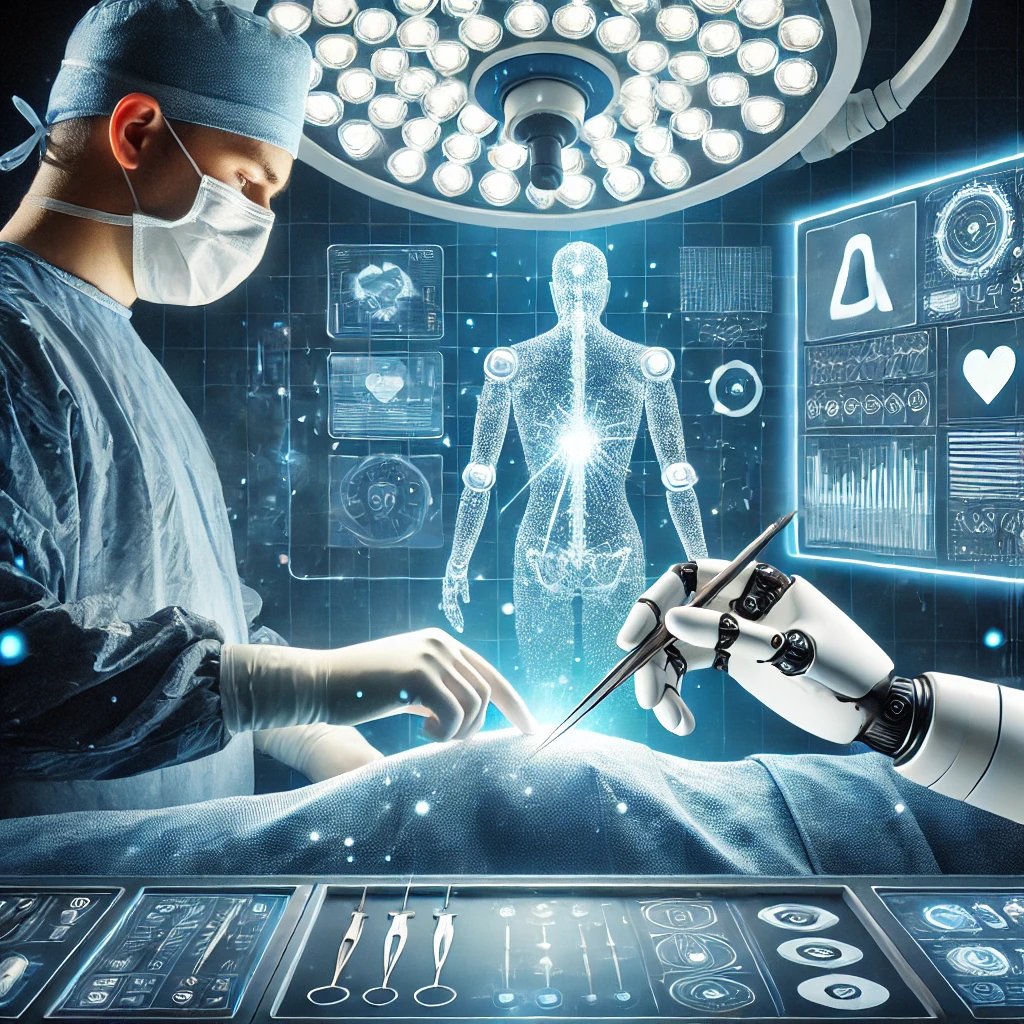AI in Medicine: Transforming Healthcare and Surgery
AI is rapidly advancing in healthcare, offering doctors enhanced tools and insights. From supporting surgeons in complex procedures to predicting patient outcomes, let’s explore how AI is revolutionizing the medical field.


How AI is Changing the Landscape of Medicine
In the past few years, AI has become an integral part of healthcare, assisting in everything from diagnostics to personalized treatments. With its ability to process vast amounts of data and recognize patterns that may escape the human eye, AI supports healthcare professionals in providing more accurate, efficient, and timely care. One area seeing significant AI impact is surgery, where AI enhances precision and aids in complex procedures.
1. Enhanced Surgical Precision
AI-powered robotic systems can assist surgeons with a level of precision that minimizes errors and speeds up recovery times. For example, robotic arms controlled by surgeons can perform movements that are smoother and more precise than human hands alone. These tools are especially valuable in delicate surgeries, such as those involving the spine or brain, where millimeter-level accuracy is critical.
2. Augmented Diagnostics and Decision Support
AI helps doctors analyze imaging results and other diagnostic data more quickly and accurately. In surgery, AI algorithms can assess and predict potential complications based on patient history, giving surgeons vital information to prepare accordingly. This support enables faster, more confident decision-making during procedures.
3. Personalized Treatment Plans
AI can analyze patient-specific factors like genetics, medical history, and lifestyle to recommend personalized treatment plans. This is particularly beneficial in oncology, where AI can help develop tailored cancer treatments based on the unique characteristics of each patient’s tumor.
4. Remote and Minimally Invasive Procedures
With AI-guided robotic tools, surgeons can now perform minimally invasive surgeries from a distance. This is crucial for providing expert care in remote or underserved areas. AI’s role in remote surgery is growing, with platforms that allow specialists to control robotic systems through secure networks, bringing high-quality care to patients who might otherwise go without.
5. Training and Simulation for Surgeons
AI-driven simulations offer surgeons a unique opportunity to practice and refine their skills in a risk-free environment. Advanced simulators with real-time AI feedback enable doctors to learn and master complex techniques before performing them on actual patients, ultimately leading to better patient outcomes.
Conclusion
The integration of AI in medicine, particularly in surgery, has paved the way for a new era of healthcare where technology and human skill go hand in hand. By enhancing precision, supporting diagnostics, and enabling personalized treatments, AI empowers medical professionals to provide care that is safer and more effective. As AI continues to evolve, it will open even more possibilities for innovation in medicine, shaping a future where doctors and AI work side by side to save lives.